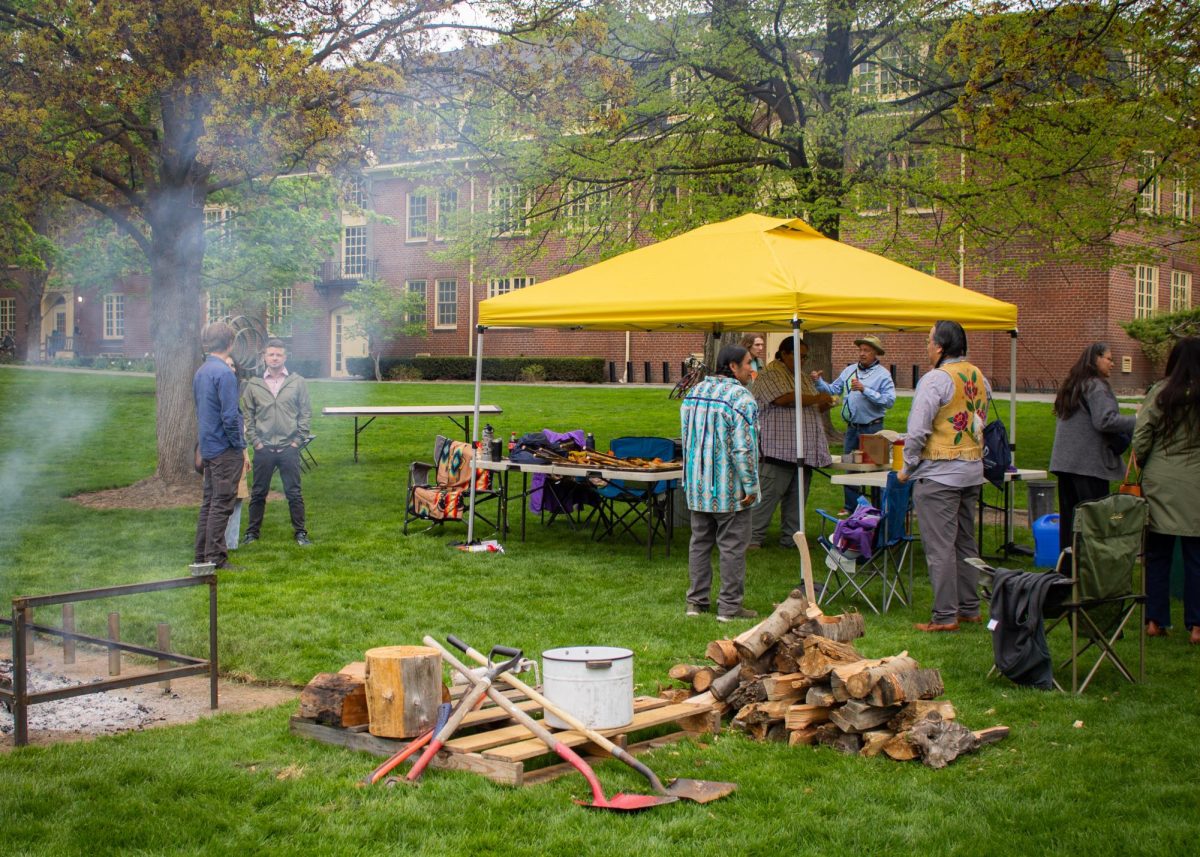A panel of students knowledgeable about the pros and cons of divestment testified before ASWC last Saturday, April 5 in order to better inform ASWC senators in anticipation of a resolution concerning divestment being brought before the full senate.
Sophomore Ari Ronai-Durning and senior Abby Salzer spoke on behalf of the Campus Climate Challenge (CCC) and 350 Divestment Campaign, and explained the social and economic benefits of divesting the college’s endowment from fossil fuel companies, while junior Jamie Edison and senior Nehali Dave, who is the CEO and Chief Financial Officer for the Whitman Investment Corporation (WIC), explained potential drawbacks to divestment.
The divestment campaign at Whitman aims to convince the college to withdraw its investments in the 200 companies with the largest known fossil fuel reserves. While divestment would not have a direct financial impact on these companies, supporters of divestment believe it would help shift the political climate in the country which would eventually lead to legislation and a wider cultural shift.
“The only time [fossil fuel companies] are going to have an incentive [to not burn carbon reserves] is when legislation is passed,” said Salzer. “This campaign is about creating a political climate that is going to have political ramifications, so politicians can stand up and say ‘The status quo is changing, our culture is changing.'”
Critics of the campaign argue that this shift would not actually occur, and that Whitman could gain lower returns on its endowment, which would lead to higher tuition fees and less financial aid.
“Divestment doesn’t offer any solutions to climate change. It doesn’t offer any immediate results, it only [offers] potential political change, and it therefore is not worth the risk of losing any sum of money,” said Edison.
The potential financial impact of divestment was brought up by all four panelists over the course of the two-hour session. In an unprecedented move, Board of Trustee member, David Nierenberg tasked financial analyst Justin Rodegerdts with reviewing the college’s endowment to find how much is invested in the 200 companies targeted by the divestment campaign. Rodgerdts reviewed 80 percent of the endowment and projected that only 2 percent is directly invested in the fossil fuel companies. Representatives from the CCC shared Rodegerdts’ findings during the panel.
However, Whitman’s endowment is run by 55 separate independent financial managers who invest the endowment without direct guidance from the college. Nine of these managers are currently invested in fossil fuels. These nine managers together control 35 percent of the college’s endowment, all of which may need to be shifted to new managers should the managers not wish to change their practices. Dave explained during the panel that this transfer could endanger the college’s return on its endowment, as there are no colleges of similar caliber which have divested.
“The problem [with divestment] is we don’t know it’s impact unless we do it, or someone else does… You can say it’s a little risk, you can say it’s high risk, but you have to know there’s a risk, and you have to think about whether that risk is worth it,” said Dave.
One of the endowment managers invested in fossil fuels is the Whitman Investment Corporation, a student investment management group which manages a portfolio in order to learn about investment and economics. While members of WIC have varying views on divestment, the organization cannot divest its funds independently due to restrictions put in place by the alumni who donated funds to found the corporation. WIC members’ understanding of financial markets and investment has still proven a valuable resource to the CCC and 350 campaign, who recently started a financial work group to gather data on the economics of divestment and to work with WIC.
A point of agreement between all members of the ASWC panel was the dismissal of active shareholding, in which the college would use its investments to raise environmental concerns at board meetings as a means of affecting fossil fuel companies’ business models. While this strategy may work if Whitman had more investment in fossil-fuel companies, the college does not currently have anywhere near enough invested to have a significant voice in any of the companies’ practices.
“There’s an inherent flaw in shareholder activism for fossil fuels in particular,” said Ronai-Durning. “Active shareholding works to modify a flaw in the business model of a company, but unfortunately in fossil fuel companies the business model is the flaw … You can’t pass a shareholder resolution banning the company from selling the very products which generate its profit.”
Alongside the ASWC senators, dozens of students attended the hearing to learn about divestment, while others participated online through the use of a live-streaming. While the panel format and live-streaming are both new practices for ASWC, the high level of participation by both senators and students has led to the suggestion that more panels may take place in the future.
“I think [the panel] was a great opportunity for the senators to talk with people who know the most about these issues, without the restrictions of parliamentary procedure,” said ASWC President Kayvon Behroozian.
Behroozian plans to utilize live-streaming at the next ASWC senate, which will take place on Sunday, April 14th. At the senate ASWC will likely consider a resolution on whether or not to support divestment. Should ASWC choose to support divestment, Behroozian would likely speak with the faculty board to gather further support, and alert administrators to ASWC’s position. If no resolution is passed, the CCC would have to wait until next academic year before raising the issue with ASWC again.









Rachel Alexander • Apr 8, 2013 at 5:32 pm
It’s been fixed, thank you.
Oh, wow. • Apr 8, 2013 at 4:52 pm
Our President’s name is Kayvon Behroozian….not BehrooVian.
Common, Pio. Get it together.